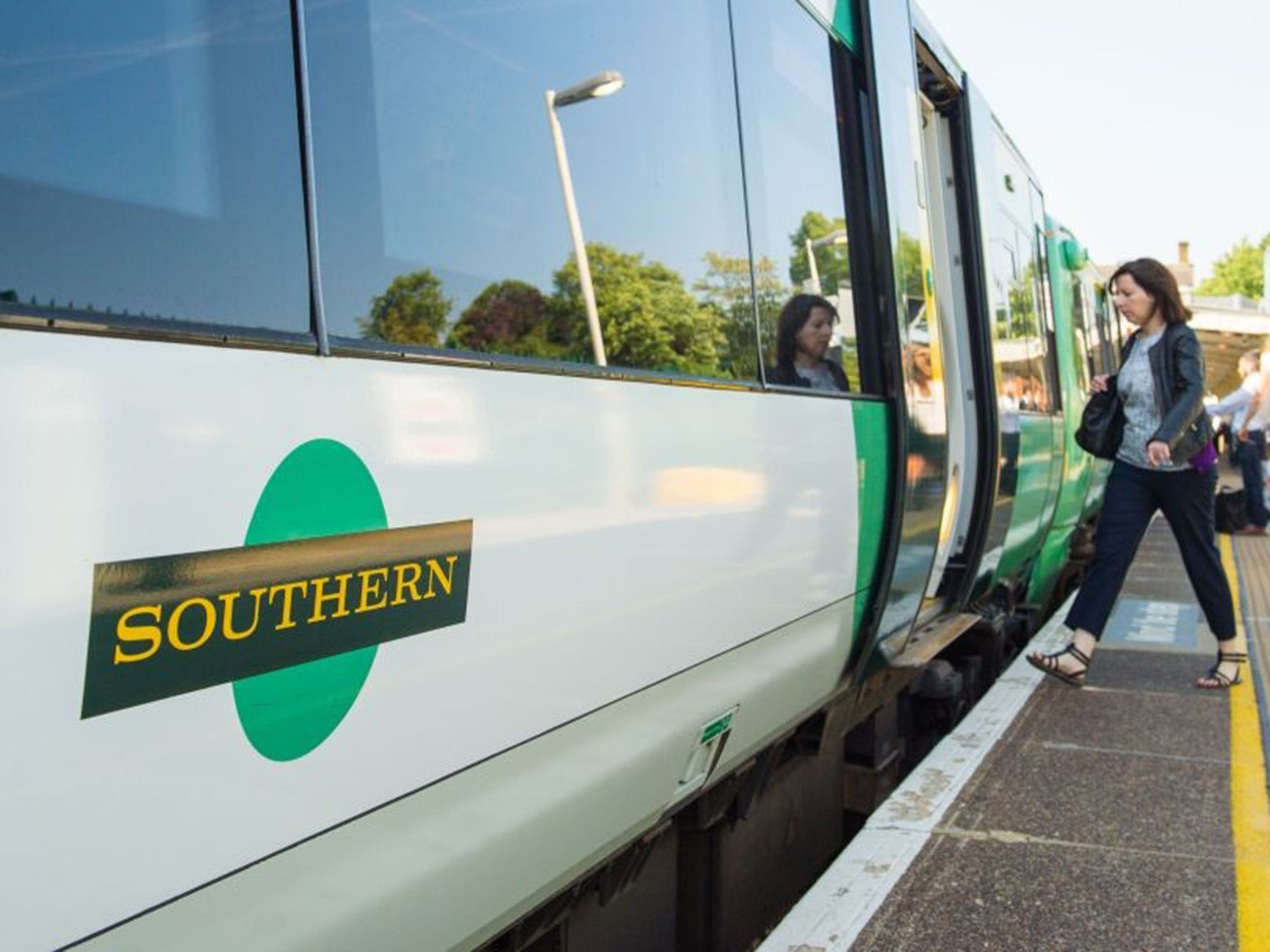Typical Europeans coming over here to steal the benefits of owning our railways
You might expect a story about British taxpayers having to give millions to the Germans would make the Daily Mail so angry their front page just said, ‘Nggggyyyyyrrrrraaaaggggh’


A report this week into Britain’s privatised railways has shown we’ve paid £3.5bn of public money to European rail companies who own our network. Surely that’s the last straw, and the Government will now call a referendum so we can at last get out of Europe and get our country’s railways back.
I expect there will be fury from Ukip and Boris Johnson about how we’re chucking money at Europe like this. Maybe they’ll spray “nationalising the railways would save £350m a week to spend on the NHS” on the side of trains.
Most Conservative MPs will scream we must end this sordid business of handing over money to European bodies we have no control of, and Nigel Farage will unveil a poster showing rail executives queuing up to steal our money, under a huge slogan that says “Braking point”.

When the railways were privatised, the reason given was we can’t expect the taxpayer to subsidise people travelling around Britain. And it’s worked out perfectly, because now we no longer do that, and instead the taxpayer subsidises people travelling around Germany.
For example, Arriva trains are owned by the German government, who invest the profits into their own railways. You might expect a story about British taxpayers having to give millions to the Germans would make the Daily Mail so angry their front page just said, “Nggggyyyyyrrrrraaaaggggh”. But they haven’t mentioned it at all so presumably they did too much ecstasy over Christmas and haven’t come down from feeling loved-up yet.
You can forgive the Conservatives for not knowing privatisation would end up the way it has. Who could possibly have predicted that once you run an industry entirely for profit, that all the companies care about is profit?
So the study shows it costs on average 27p a minute to travel by train, though to their credit, this must be why train companies generously ensure their trains regularly get stuck for 45 minutes due to signal failure, as this brings down the average price per minute spent on the train. If you’re really lucky you might be on one of these Arriva trains that conks out near Bristol for 14 hours, bringing the price per minute down to about ninepence.
Fares are up 56 per cent since 2006, which is double the rise in earnings, making the fares four times as expensive as in Europe. So it might be cheaper to hand the franchises over to fairgrounds. The 8.17 to Birmingham New Street will creak 300 feet up a steep climb outside Adderley Park, then plummet towards the Bull Ring in a water slide, while everyone on the platform gets soaked, then shrieks with laughter.
The 7.53 from Orpington to London Bridge will shunt through a series of doors with luminous skeletons painted on them, and the guards will be asked to make “wooooo” noises as the train goes through the tunnel after Lewisham, if the RMT can agree on a “ghost noise bonus”.
Otherwise it’s hard to see where the investment has gone, especially on Southern Rail, which has reduced its service to such a level, it should have been the subject of a film in the 1950s. David Niven would meet Alec Guinness in a gentlemen’s club, and say “Sir, I wish to propose a bet. We shall race each other to London Victoria. We shall set off at the same time, I commencing my journey in the hills of Nepal, while you begin at the Cornish pasty store on the concourse in Brighton station. The stipulation is you must travel only on Southern Rail, and a thousand guineas goes to whichever of us reaches the Wetherspoons at Victoria first.”
Then we’d see Niven riding across Afghanistan on a yak, while Alec Guinness was forced to lodge with a family of accountants while his train was stuck for nine days due to a defective whistle outside Redhill.
To be fair, while the companies who have been in charge of the railways are foreign, many of the executives are British so we can at least be proud of that. Dean Finch, National Express Chief Executive, made £3.3m in 2015, which he says is justified, so presumably he personally turned up at every commuter’s house and gave them a piggy back.
Someone on an average salary now spends fourteen per cent of their income on rail fares. That may seem excessive, but Tim O’Toole, executive of First Group, has made £7m over the last five years, and if the passengers whose fare increases have made that possible could see the smile on little Timmy’s face, they’d know their contribution was all worthwhile.
And David Brown of Go-Ahead, who own Southern Rail, got £1.6m last year, so imagine how much he’d have got if any of Southern Rail’s trains had actually arrived anywhere.
So Chris Grayling and Michael Gove are sure to demand an end to this handout we give Europe, complaining that otherwise there’ll be vast queues of executives wanting to come over here and enjoy the benefits of owning our railways. Newspapers will shriek every day about foreigners taking us for mugs by coming over and getting huge dividends for nothing, proving we’ve lost control of our borders.
Rail executives will be forced to wait in Calais, setting up camps in the hope that one day they’ll make their way across and enjoy our generous rail ownership system, occasionally scrambling into the back of a lorry to spend twelve hours crouched in darkness over one of the wheels, until they think “this gives me an idea for what conditions should be like on our trains”.
Join our commenting forum
Join thought-provoking conversations, follow other Independent readers and see their replies
Comments
Bookmark popover
Removed from bookmarks